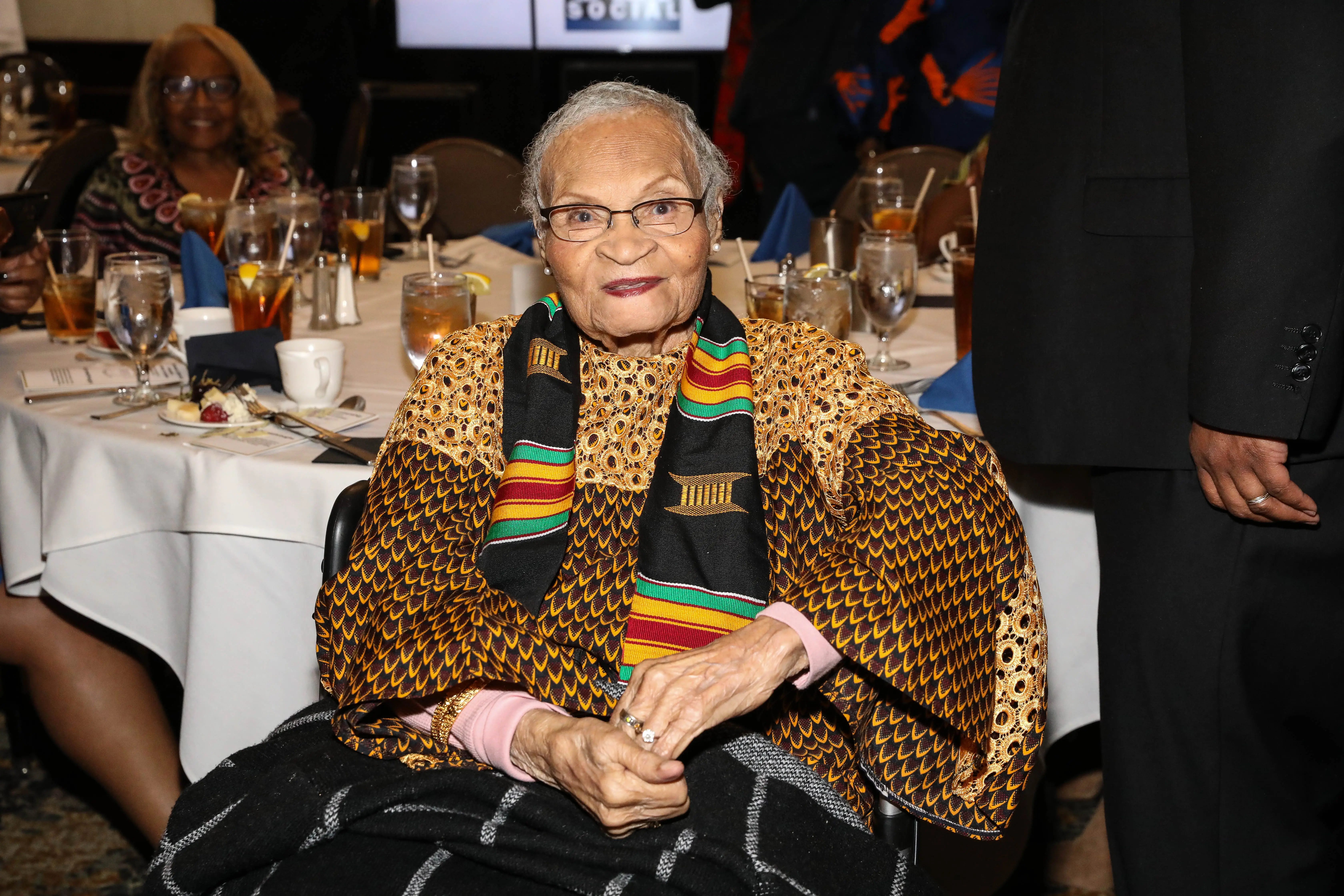Who was Viola Ford Fletcher? Tulsa Race Massacre's oldest survivor dies at 111
-
 Queen Mother and Founder of the VFF Foundation, Viola Ford Fletcher, age 108, attends the Oldest Living Tulsa Oklahoma Massacre Survivors Celebrated And Book Cover Revealing at The City Club of Washington on February 28, 2023 in Washington, DC. (Photo by Brian Stukes/Getty Images)
Queen Mother and Founder of the VFF Foundation, Viola Ford Fletcher, age 108, attends the Oldest Living Tulsa Oklahoma Massacre Survivors Celebrated And Book Cover Revealing at The City Club of Washington on February 28, 2023 in Washington, DC. (Photo by Brian Stukes/Getty Images)Viola Ford Fletcher, better known as “Mother Fletcher,” has died at the age of 111, one of the last surviving witnesses to the 1921 Tulsa Race Massacre. Her death, confirmed by her grandson Ike Howard, has thrown fresh spotlight on a century-old atrocity that she devoted the final part of life trying to keep in public memory.
Fletcher was born in Oklahoma on May 10, 1914 and grew up in the Black community of Greenwood in Tulsa, which was known as “Black Wall Street.” As a young girl, she grew up in a neighborhood with Black-owned businesses, Black professionals and a tight-knit group of residents.
That world was shattered on May 31, 1921, when a white mob swarmed Greenwood after false accusations against a young Black man.
Last Survivors of 1921 Tulsa Race Massacre Remembered#ViolaFordFletcher, one of the last survivors of the Tulsa race massacre, has died aged 111.
— Daily Euro Times (@dailyeurotimes) November 24, 2025
She spent decades seeking justice for the Black community destroyed in the 1921 attack, raising three children and working as a… pic.twitter.com/sYGLGjd21ZThe mob, over two days, burned homes to the ground, looted businesses and killed untold numbers of Black residents. About 35 blocks went up in flames, and families were left without homes or a business to make a living.
At only seven when the massacre took place, Viola Ford Fletcher still carried memories of the horror for a lifetime. She remembered how she ran with her family through streets filled with smoke, watched as homes were burned to the ground.
The trauma from that night remained with her for decades, and shaped both her resilience and her activism. For years, she, like many survivors, hardly spoke about what had happened, afraid of retaliation.
Viola Ford Fletcher's life after the infamous Tulsa race massacre
Her life changed in many ways after the attack. Cast into poverty, her family was nomadic and worked as sharecroppers. Fletcher left the school in fourth grade, and returned to Tulsa in her teens, working at a department store.
She wed Robert Fletcher and accompanied him out to California where she was employed in the war effort as a shipyard welder during World War II. After fleeing an abusive marriage, she raised her children mostly on her own and worked as a housekeeper for decades, devoting herself to securing stability for her family.
Viola Ford Fletcher went on to become a strong advocate for justice in the latter years of her life. In 2021, along with other survivors, she testified before Congress, demanding recognition and reparations for the long-term effects of the massacre, including Black families’ generational wealth that was stolen.
Mother Viola Fletcher, 111, survived Tulsa’s massacre. Fought for justice until the end. Rest in power. pic.twitter.com/XEzQ3ndC8u
— Lee Merritt (@LeeMerrittesq) November 25, 2025She also helped write a memoir, Don’t Let Them Bury My Story, calling on the nation to come to terms with a history that has often been overlooked or denied.
Fletcher, her brother Hughes Van Ellis and fellow survivor Lessie Benningfield Randle emerged as central figures in a reparations lawsuit filed against the city of Tulsa and other defendants.
Viola Ford Fletcher spent the next decade pushing for accountability and historical transparency even though the Oklahoma Supreme Court dismissed the case in 2024.
Amidst her death, tributes from officials, activists and community leaders have poured in, remembering Fletcher not just as a survivor of one of the worst acts of racial violence ever in the United States, but as an example of dignity, strength and persistence.
TOPICS: Viola Ford Fletcher, Hughes Van Ellis, Mother Fletcher, Black Wall Street, Don’t Let Them Bury My Story, Human Interest, Tulsa, Tulsa Race Massacre